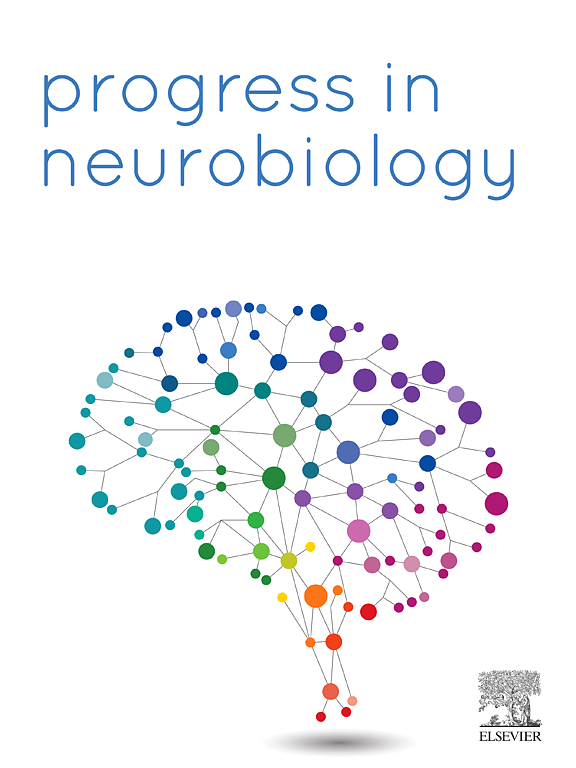前额极皮层在调整猿类反应执行和动作抑制之间平衡中的作用。
IF 6.1
2区 医学
Q1 NEUROSCIENCES
引用次数: 0
摘要
行为的执行控制需要在反应执行和行为抑制之间保持微妙的平衡。前额叶皮层的最前部(前极皮层)在猿类中高度发达;然而,以前的研究从未考察过前额叶皮层在调节动作执行和动作抑制之间的相互作用时所扮演的重要(不可或缺)角色。在这项跨物种研究中,我们考察了人类和猕猴在停止信号任务中的表现,然后评估了前额极皮层选择性和双侧损伤对猴子行为的影响。人类和猕猴在反应执行(反应时间(RT)增加、反应变异性降低)和动作抑制(抑制增强)方面都表现出与练习相关的显著的会内调整。此外,这两个物种都表现出了与情境相关的(错误后和停止后)行为调整。在脑损伤后的测试中,与脑损伤前的表现相比,额极受损的猴子的反应时间更长,超时试验的比例更低。前额极受损猴子的平均RT和RT变异性与练习相关的变化显著增加。它们还表现出错误后行为调整的减弱,但停止后行为调整的增强。重要的是,前额极受损对猴子的抑制能力没有明显影响。我们的研究结果表明,前额极皮层在将控制权分配给反应执行过程中起着关键作用,但对行动抑制却不起作用。本文章由计算机程序翻译,如有差异,请以英文原文为准。
The role of frontopolar cortex in adjusting the balance between response execution and action inhibition in anthropoids
Executive control of behaviour entails keeping a fine balance between response execution and action inhibition. The most anterior part of the prefrontal cortex (frontopolar cortex) is highly developed in anthropoids; however, no previous study has examined its essential (indispensable) role in regulating the interplay between action execution and inhibition. In this cross-species study, we examine the performance of humans and macaque monkeys in the context of a stop-signal task and then assess the consequence of selective and bilateral damage to frontopolar cortex on monkeys’ behaviour. Humans and monkeys showed significant within-session practice-related adjustments in both response execution (increase in response time (RT) and decrease in response variabilities) and action inhibition (enhanced inhibition). Furthermore, both species expressed context-dependent (post-error and post-stop) behavioral adjustments. In post-lesion testing, frontopolar-damaged monkeys had a longer RT and lower percentage of timeout trials, compared to their pre-lesion performance. The practice-related changes in mean RT and in RT variability were significantly heightened in frontopolar-damaged monkeys. They also showed attenuated post-error, but exaggerated post-stop, behavioural adjustments. Importantly, frontopolar damage had no significant effects on monkeys’ inhibition ability. Our findings indicate that frontopolar cortex plays a critical role in allocation of control to response execution, but not action inhibition.
求助全文
通过发布文献求助,成功后即可免费获取论文全文。
去求助
来源期刊

Progress in Neurobiology
医学-神经科学
CiteScore
12.80
自引率
1.50%
发文量
107
审稿时长
33 days
期刊介绍:
Progress in Neurobiology is an international journal that publishes groundbreaking original research, comprehensive review articles and opinion pieces written by leading researchers. The journal welcomes contributions from the broad field of neuroscience that apply neurophysiological, biochemical, pharmacological, molecular biological, anatomical, computational and behavioral analyses to problems of molecular, cellular, developmental, systems, and clinical neuroscience.
 求助内容:
求助内容: 应助结果提醒方式:
应助结果提醒方式:


